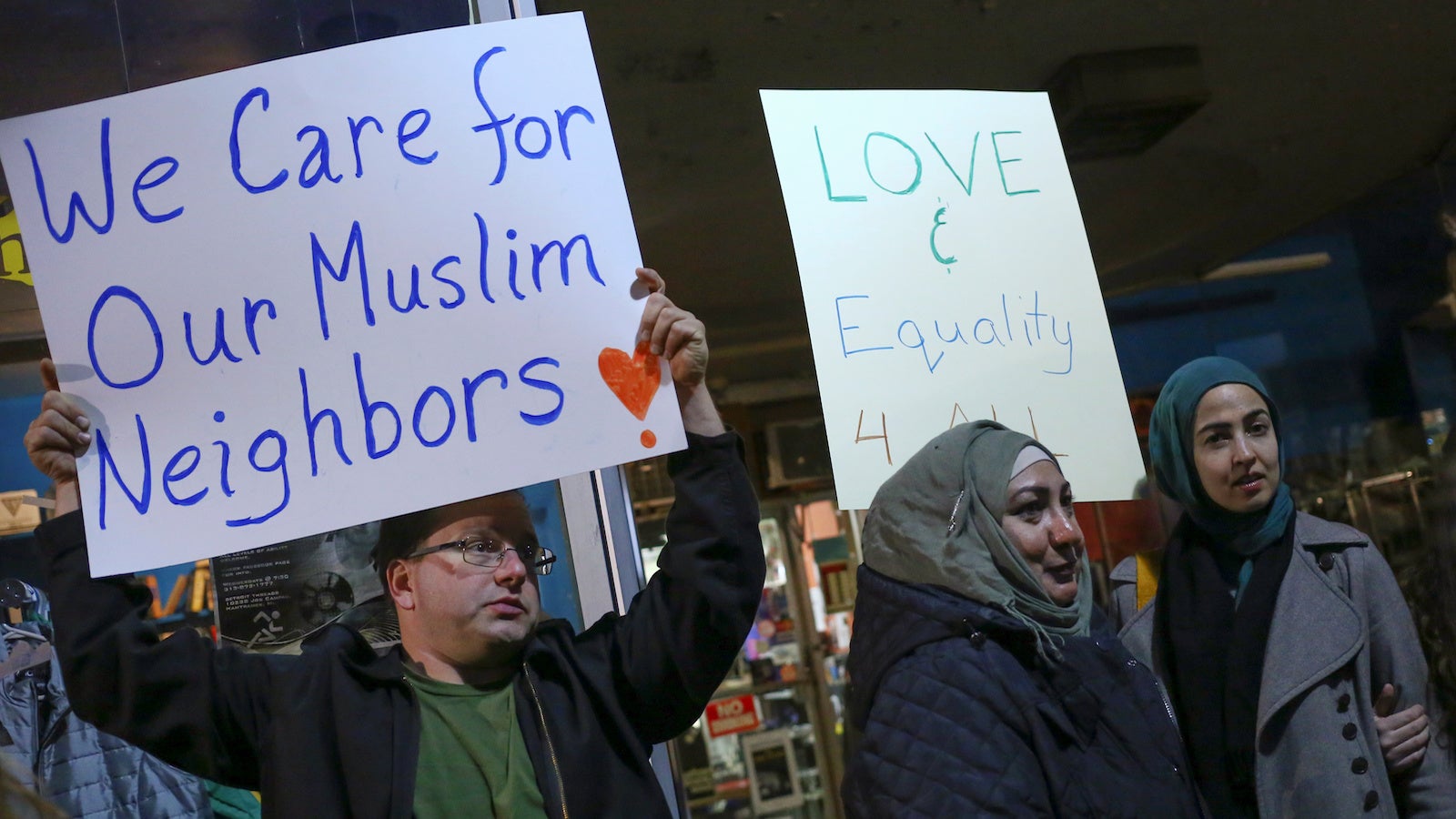Behavioral science shows why we must stay vigilant about calling out everyday bigotry
In the days following Donald Trump’s election, reports of hate crimes and racial harassment surged. African-American freshmen at University of Pennsylvania were spammed with messages about lynching black people. Vandals in Wellsville, New York painted swastikas on a building at a softball field with the message “Make American White Again.” Fliers distributed at Texas State University read, “Now that our man Trump is elected and Republicans own both the Senate and the House—time to organize tar & feather vigilante squads and go arrest and torture those deviant university leaders spouting off all this diversity garbage.”


In the days following Donald Trump’s election, reports of hate crimes and racial harassment surged. African-American freshmen at University of Pennsylvania were spammed with messages about lynching black people. Vandals in Wellsville, New York painted swastikas on a building at a softball field with the message “Make American White Again.” Fliers distributed at Texas State University read, “Now that our man Trump is elected and Republicans own both the Senate and the House—time to organize tar & feather vigilante squads and go arrest and torture those deviant university leaders spouting off all this diversity garbage.”
These incidents are undoubtedly alarming. And behavioral science points to something else that keeps me up at night: implicit bias.
For every person with blatantly bigoted beliefs, there are many more who hold ordinary implicit biases. These are stereotypical thoughts and feelings that come to mind involuntarily, even when the thinker consciously rejects those thoughts. For example, people may think briefly about terrorism when they see a Muslim American at the airport before dismissing that thought as unfounded. Or white people may feel an instant of fear when they see an African American before rejecting that feeling as inconsistent with their values. Research suggests that the majority of Americans—hundreds of millions of people—hold such implicit biases.
Research from my neuroscience and psychology lab at the University of North Carolina at Chapel Hill suggests that cues from authority figures can make the difference between keeping implicit biases in check and capitulating to them. To test this idea, we divided participants into two groups. The first group was told by the experimenter that their attitudes were valid and were encouraged to express their opinions, even if they were not “politically correct.” In the second group, the experimenter informed participants that everyone is vulnerable to biases, but did not validate those biases. We then asked participants to rate their feelings toward black and white Americans. Participants who associated black faces with negative feelings overtly expressed much more dislike for African Americans when their biases had been validated as acceptable by the experimenter.
In another study, we measured participants’ implicit bias regarding gay couples. We suggested to one group that their implicit reactions were a legitimate product of their own genuine beliefs. We assured a second group that their attitudes had nothing to do with their real selves, but could be dismissed as a reflection of stereotypes in the culture. We then measured their agreement with explicitly anti-gay statements like, “I would remove my child from class if I found out the teacher was gay” and “Hospitals shouldn’t hire gay male doctors.” Again, participants who scored high on implicit bias expressed much more anti-gay sentiment when their biases were legitimized by the experimenter.
Holding implicit biases does not make a person a bigot or a racist. We are all vulnerable to implicit biases, because the human mind always thinks in categories and generalizations. What matters most is that we reject those generalizations by making the effort to do so. Millions of Americans hold implicit biases they consciously choose to reject, whether out of a sincere desire to rise above them or out of a practical necessity to take part in a civil society. But the daily choice to reject bias requires strong social norms that say prejudice is unacceptable.
Those social norms have been slowly evolving toward greater tolerance over the past few decades. But if the new Trump administration is seen as a sign that explicit bigotry is acceptable again, and that norms against racism and Islamophobia are nothing more than “political correctness,” the consequences will be much broader than abuses from a small number of extremists. Left unchecked, implicit bias increases the risk of discrimination in hiring, medical treatment, policing, and countless daily decisions large and small. Even a slight uptick in the expression of casual bias, when multiplied by millions of people, would have a devastating cumulative effect.
Studies of how to reduce discrimination have found that social norms can have a bigger impact on behavior than personally held beliefs, which are often difficult to change. First, maintaining social norms against prejudice means consciously rejecting our own implicit biases. Then it means speaking up, regardless of who you voted for, to say loudly and clearly in personal conversations and on social media that bias is not our way, and bigotry is unacceptable. Rejecting prejudice is not, and cannot be, a partisan issue.